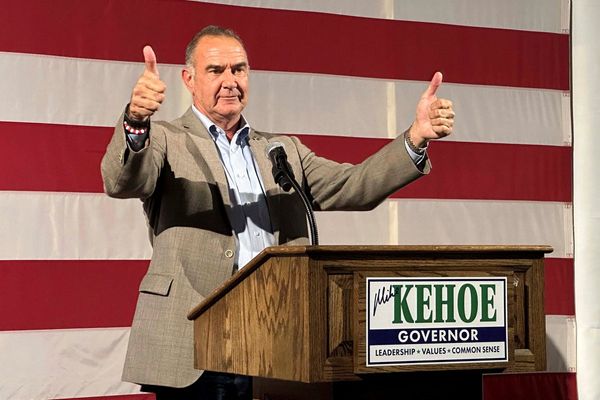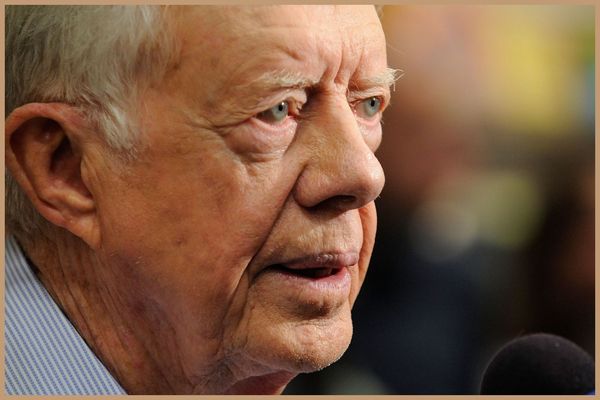ORLANDO, Fla. — When Orlando attorney Coleman Watson was just 41, he experienced a sudden stroke, impairing his ability to speak. At 43, he’s running for the U.S. Senate.
“To me, disability is a matter of perception,” Watson wrote in an email. “My stroke felt like I was a mouse in a maze. And in order to unlock that puzzle, I had to find the right key: speech therapy. I promised myself that when I could talk, read, and write again, then I would pay it forward. That day has come. My ability is stronger than my disability.”
Watson, an Orlando attorney, faces a tough battle in the Democratic primary, where high-profile candidate and U.S. Rep. Val Demings, also of Orlando, has already raised $4.6 million since entering the race in June. Watson’s campaign, meanwhile, so far had only a $2,525 loan from himself as of the June 30 second-quarter deadline.
But, Watson said, “I’m looking to win.” He said he hopes his run inspires some of the 61 million adults in the U.S. who live with a disability, who make up more than a quarter of the population. Currently, there are only 15 elected officials at the federal level with disabilities, including U.S. Rep. Brian Mast, R-Fla., who lost both legs in combat in Afghanistan.
“Unfortunately, people with disabilities, like me, are woefully underrepresented in elected office,” he wrote. “Many people with disabilities are great leaders in our own communities. We’re adaptable, resilient, creative, and great at problem-solving. My passion for advocacy has grown because of my stroke, not in spite of it.
Coleman, a New York Law School grad, started the firm Watson LLP in 2015 and litigated patent, trademark, and copyright litigation as well as civil rights claims.
But following his cryptogenic stroke in early 2020, he wrote, “Everything changed. My family. My marriage. My kids. My business. My friends. All in an instant. But for me, my stroke was grace. It showed me about what matters in life – and what matters is change.”
Watson has aphasia, a speech and language impairment that doesn’t impact intelligence but does affect a person’s ability to form and recall words. During his Zoom interview with the Orlando Sentinel, he would occasionally pause to write the word he wanted to say on a whiteboard. He later followed up with an email to further flesh out his words.
His biggest issue, he said, is health care.
“It’s not the only issue for me, but it’s definitely the first one,” he said. “For me, after my healthcare crisis, I had to file bankruptcy. … Forty percent of people who have to file bankruptcy [do it] because of medical reasons, but we don’t have a way to categorize this. And so what happens is when you go into bankruptcy, you are categorized as a person who is really bad with bills. But that’s not the right answer. For me, I had really, really great credit. But then because of my bankruptcy and my medical reasons, they were wiped out.”
Watson had to relearn speech because of his stroke, he said. “And I had to look at my insurance policy to see how many sessions I got for my speech to repair it. And I learned that I only have 40 hours to rebuild my brain on my own. … So my policy said, ‘Okay, if you want to have more time for your speech, you have to pay out of your pocket.’ Then I was thinking, ‘Well, how am I going to ever talk again, because I don’t have the money for that.’”
He called for reforming health insurance, disability, and bankruptcy “so that the systems work together to ensure that when you’ve paid, the default is to award you financial assistance/disability. And if it’s not approved, then the government can get it back through taxes, etc. By working in concert, we could save more families.”
He also wanted to focus on the environment, including reducing greenhouse gasses, as well as providing workers with a living wage and unemployment insurance.
“I believe I am the best candidate to represent Floridians because I’ve had a wealth of life experience that has had me living at both the extremes and comforts of society,” he wrote. “... I want to change health care and advocate for all Americans and my perspective and experience will ensure more inclusive results.”
The winner of the August 2022 Democratic primary will most likely face incumbent Republican U.S. Sen. Marco Rubio in the November 2022 election.
———







